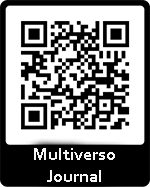The Absurdity in Albert Camus's Work
DOI:
https://doi.org/10.46502/issn.2792-3681/2021.1.1Keywords:
absurd; Albert Camus; philosophy; hermeneutic analysis; existential process.Abstract
From a philosophical perspective the objective of the research was to analyze the absurdity in Albert Camus' thinking. To this end, the hermeneutic analysis of some texts of this and other authors related to the concept of absurdity was used. In Camus absurdity is a procedure: it is an intellectual challenge, which tries to seek from reason, answers to a state of the soul. It is not necessarily a real, but methodical, absurdity, born of the confrontation between man and the world, that is why absurdity is not an end, but the beginning of a process of individual or intersubjective dialogue or reflection. On this point, the author explains that being aware of our absurd situation is only the starting point. At least existentially it is concluded that, when man becomes aware of the absurdity of his life, should he continue to drag his existence into this world or end his life through suicide? Camus judges that any attempt to escape the absurdity would be to evade the problem. Consequently, man must live according to his absurd condition, becomes in this way a man in absurdity.
References
Beuchot, M. (1997). Tratado de hermenéutica análogica: hacia un nuevo modelo de interpretación . Ciudad de México: Editorial Itaca.
Camus, A. (1978). El hombre rebelde. Buenos Aires: Editorial Losada SA.
Camus, A. (1995). El mito de Sísifo. Madrid: Alianza editorial.
Camus, A. (2001). El exilio y el reino. Madrid: Alainza editorial.
Camus, A. (2012). El extranjero. Madrid: Alianza editorial.
Camus, A. (2018). La peste. Buenos Aires: Libros tauro.
Castillo, R. (2002). Camus o la libertad en rebelión. REvista de filosofía de la sociedad alesiana de Caracas, (328), 120-139.
Española, R. a. (2020). Diccionario de la real academia española de la lengua española. Madrid: RAE. es.
Guardia, A. (1994). El humanismo de Camus. Revista de filosofía de la universidad de Costa de Rica, 67 (68), 129-133.
Krasnova, M. (2000). Albert Camus: de la conciencia de lo absurdo a la rebelión. Revista ciencia ergo sum, 07 (03), 112-129.
Luppe, R. (1970). Albert Camus. Barcelona: Editorial Fontenella.
Romero, A. (1994). Albert Camus: Historia del Absurdo y la Moral. Caracas: UPEL.
Published
How to Cite
Issue
Section
License
Copyright (c) 2021 Moisés Flores

This work is licensed under a Creative Commons Attribution 4.0 International License.
The authors who publish in this journal agree to the following terms:
The authors retain copyright and guarantee the journal the right to be the first publication where the article is presented, which is published under a Creative Commons Attribution License, which allows others to share the work prior to acknowledgment of the authorship of the article. work and initial publication in this journal.
Authors may separately enter into additional agreements for non-exclusive distribution of the version of the work published in the journal (for example, placing it in an institutional repository or publishing it in a book), with an acknowledgment of its initial publication in this journal.



















